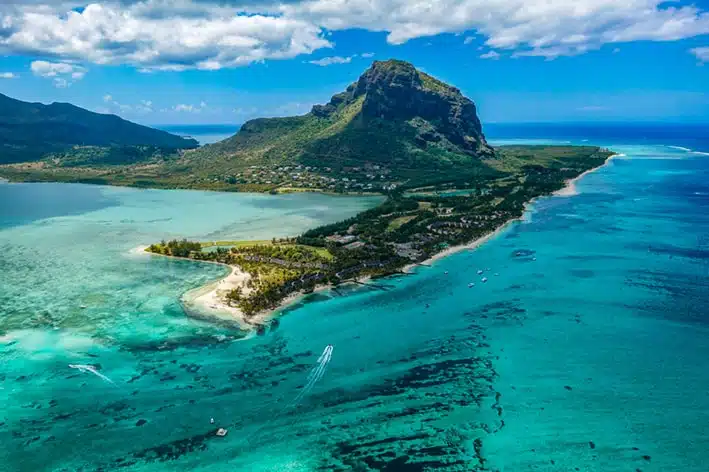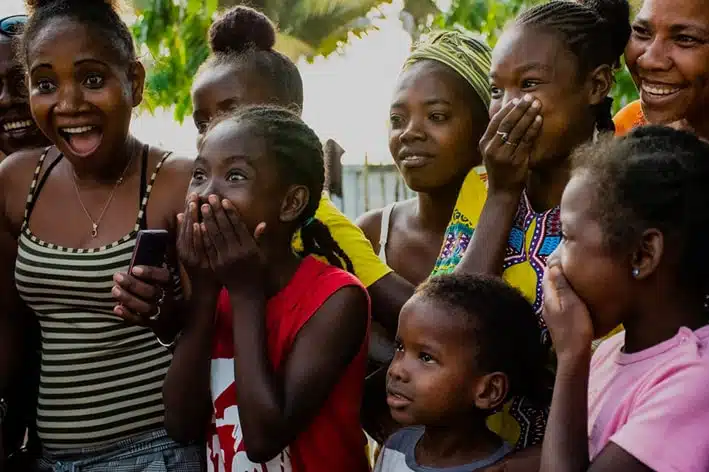Eco-tourism aims to apply the actions and principles of eco-responsibility and respect for local populations to the tourism sector.
But how can tourism activities be combined to combine with greater ecological and social concerns? The Vanilla Islands Association proposes several measures and activities to adopt from now on for more eco responsible trip in the heart of the islands of the Indian Ocean.
1/ Hiking on the Indian Ocean islands: an eco-responsible tourist activity
Hiking naturally meets the requirement of responsible tourism and allows you to discover the rich environment of our island while respecting their ecosystem.
Mauritius, situated in the western Indian Ocean, is full of natural places to visit on foot. You must visit the Black River gorges or the Tamarind Falls. You can get there by following the numerous marked footpaths which criss-cross each other and are home to nine species of animals and around 150 different plant species. Bonus: a gorgeous view of the sea all along your route.
In Madagascar, a trek in the wild Makay is a must-do. You can even hire the services of an expert guide to uncover all the secrets of this 4,000m² natural massif in the south-west of Madagascar. The harmony between the massif and nature is as perfect as it is enchanting, and you will immediately enjoy it.
2/ Consuming locally to sustain the economy of the Indian Ocean islands
More and more Fermes Auberges (farmhouse inns) are springing up on Reunion Island. These are family-run places where you can live well and eat local food. These Fermes Auberges offer the opportunity to discover all the flavours of Réunionese cooking, through ultra-local and seasonal cuisine. We particularly recommend the “Chez Eva Annibal” Ferme Auberge in Bras Panon and its famous vanilla-flavoured duck.
3/ Diving without damaging: discover snorkelling in the warm and transparent waters of the Indian Ocean.
Snorkelling is an underwater excursion without a bottle. Unlike diving, snorkelling is truly respectful of the environment as it does not permit too deep explorations of the sea bed, thus avoiding disturbing the most fragile species (corals and marine animals).
The Seychelles, like all the Indian Ocean islands, abound with dazzling beaches. The beaches of Praslin with are one of those places not to be missed. Huge pink granite boulders submerged in transparent water, soft white sand and above all, a deserted beach – you’ll think you’re in paradise. It is the ideal place to try the adventure of snorkelling: flippers, snorkel and diving mask will be your only equipment. That way, you will not disturb the marine ecosystem at all, while enjoying the spectacle in front of your eyes.
4/ Living in ecological and eco-responsible accommodation
Among the new types of accommodation that are developing on the Indian Ocean islands, we recommend the eco-lodge. It is an accommodation system that respects all the criteria of nature conservation and, of course, welcomes tourists. In addition, the objective is to favour the local economy and limit the impact of hotel and tourist waste on the environment.
On Mauritius, the Kestrel Valley eco-lodge or the Tea Route eco-lodge are absolutely unmissable for all types of holidays. The water in the pools and showers is heated entirely by the sun in a real tropical setting, and the eco-lodges are built of wood using only natural materials. Moreover, it is the ideal starting point for walks, canoeing and cycling trips.
Just like on Mauritius, Mayotte offers superb eco-lodges such as those in the Maoré Garden. Surrounded by the coral reef that encircles the lagoon, the Maoré Garden is a stunning place where baobabs are used as dwellings. The garden offers 18 eco-lodges in the form of bungalows right next to the sea.
5/ Photographing and observing the fauna and flora treasures of the Indian Ocean islands
La Digue is the most photographed island in the Seychelles. We recommend it for its modest size. It can be reached by sea in just 15 minutes. Also, don’t miss out on Bird Island. For bird-watching enthusiasts, it is home to thousands of Seychelles seabirds. What’s more, a hotel dedicated to animal observation and preservation is located on the island, allowing you to appreciate the exceptionally unspoilt nature of the place. The main aim of this hotel is to provide you with an unforgettable experience in the heart of the birds’ habitat while respecting their life and environment without disturbing them – the very principle of eco-responsible travel.
6/ Choosing the eco-responsible activities to be found on all the Indian Ocean islands
For an eco responsible trip, Reunion Island offers coconut leaf weaving workshops. Every part of the coconut tree is usable and reusable! For example, workshops in small groups are available in Saint Denis. Each participant will be able to produce his (or her) own creation: hat, container, bag and many others according to your desires!
On the Comoros, visit the town of Itsandra and its market. In the heart of the city and its narrow streets, you will meet its charming and colourful community. A few kilometres away, you can discover the Djim Ylang Ylang distillery and its famous perfume, a flower with special well-being properties. It is a family-run distillery where the manufacturing process, which will be explained to you in detail, respects not only traditions but also the environment.
Finally, don’t forget to visit the mangrove swamps of Mayotte. You can rent kayaks and canoes so as not to disturb the ecosystem while discovering it by sea. You can also hire the services of a guide who will take you to the hidden places and tell you the history of this magical spot.
In general, we advise you to give priority to the services offered by the local population, and to use footpaths or public transport. Not forgetting to respect the rules for the protection of the local fauna and flora, sometimes by agreeing to observe from afar. Remember, an eco-responsible trip aims to appreciate nature without altering it, while making the most of your holiday to discover local cultures.
The Vanilla Islands Association wishes you a wonderful stay in the Indian Ocean islands!







